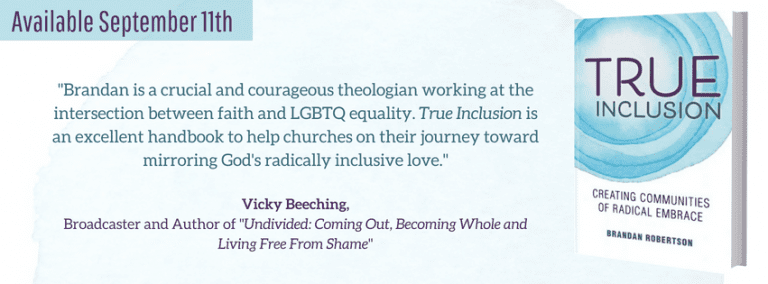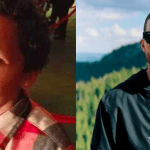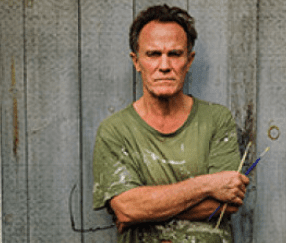The following is a short excerpt from my forthcoming book “True Inclusion:Creating Communities of Radical Embrace”
All discrimination and exclusion is rooted in our own unhealed wounds or prejudices. We discriminate and exclude based on false narratives we’ve been taught. Those false narratives often put the unfair blame for our own pain or the struggles of our society on a person or group of people. They scapegoat.
Unsurprisingly, the LGBT+ community has often been a scapegoat, not just for Christians, but for society as whole. In the early 1980s, the Central Intelligence Agency of the United States wouldn’t allow LGBT+ people to work for the agency because of fears that their “perversion” would result in the downfall of the agency. As recently as 2017, the United States military has embraced discriminatory practices against LGBT+ individuals, saying, most recently, that trans* individuals10 are “disruptive.” Who can forget the prominent evangelical televangelists throughout history who have blamed LGBT+ people for everything from hurricanes to terrorist attacks?
While these examples might seem extreme and absurd, they are a symptom of a pervasive distortion that runs deep in the human psyche. We discriminate because we buy into the scapegoating narrative. That narrative puts the blame for our problems on anyone but ourselves, and then suggests that if we could only get rid of such people, our problems would go away.
Of course, this narrative is fundamentally false. Nonetheless, all of us, in some way or another, buy into it. The problem is always the “other people” who don’t look like, act like, believe like, or love like us. What can we do when we sense ourselves falling into this scapegoating mentality? We can remind ourselves that the problem is never simply another group of people, but more often than not the powers and systems that have been created in our consciousness by generations of diverse peoples.
This is what the apostle Paul was getting at when he wrote: “For our struggle isn’t against flesh and blood people, but against powers, principalities, and dark forces in the unseen realms” (Eph. 6:12). The forces that cause our most significant problems as a human family are far more insidious than one group of people.
Getting rid of those people won’t get rid of the problem. Most of our problems are fundamentally human problems, not racial, ethnic, religious, social, or sexual. They’re problems that we, as a species, must come together to address in the midst of all of our diversity, rather than falling into the archaic, tribalistic mindset that causes us to go to war with one another, believing that this will somehow solve our problems.
When the LGBT+ community (or any other community) is excluded from the Church, we as the Church are buying in to this scapegoating narrative that dehumanizes both the excluded and excluders. We reveal that our true motivations are coming from a place of fear, which causes us to revert to lower, tribalistic levels of human consciousness. And when we function from fear, we are not doing the work of God, for the scriptures proclaim: “God is love and love casts out all fear” (1 Jn. 4:18). Such love propels us towards inclusion and unity.
When we are connected to God, we are functioning in love, and love expels any fear we might have about one another, bringing us together. And when we commit to pursue life together, in community, with those who are different, we amplify and enable the supernatural power of love to heal and transform our lives and our world through us. This work will be hard and it will require much grace. But at the end of the day, all of us will become more human and will have further humanized one another.
This is what it means to be saved, after all. To be “conformed to the image of Christ” (Rom. 8:29) is to be refined and reformed into the image of the “second” and true adam, the Hebrew word meaning “human.” In Christ, the walls that divide us are torn down and we are united across all of the boundaries and borders that separate us, creating “one new humanity” (Eph. 2:15, NIV).
This is the only hope for humanity. Unless we are willing to do the hard, painful work of sanctifying and reforming ourselves through extending grace, welcome, and unconditional love to our friends, our neighbors, and even our enemies, we can never truly be conformed and transformed into the people and the communities that we are called to be. And as long as the Church continues to function in a way that excludes, demonizes, and marginalizes any community, we are pushing ourselves further from God, and perpetuating the “dark forces” (Eph. 6:12) that are at the heart of all of our world’s problems. In excluding, we become the very ones of whom we are seeking to rid ourselves and we become agents of death and destruction, which is the greatest of sins.
To find out more and to get your copy of True Inclusion, visit www.ChalicePress.com/TrueInclusion













